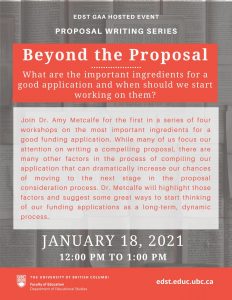Download the Call for Contributions
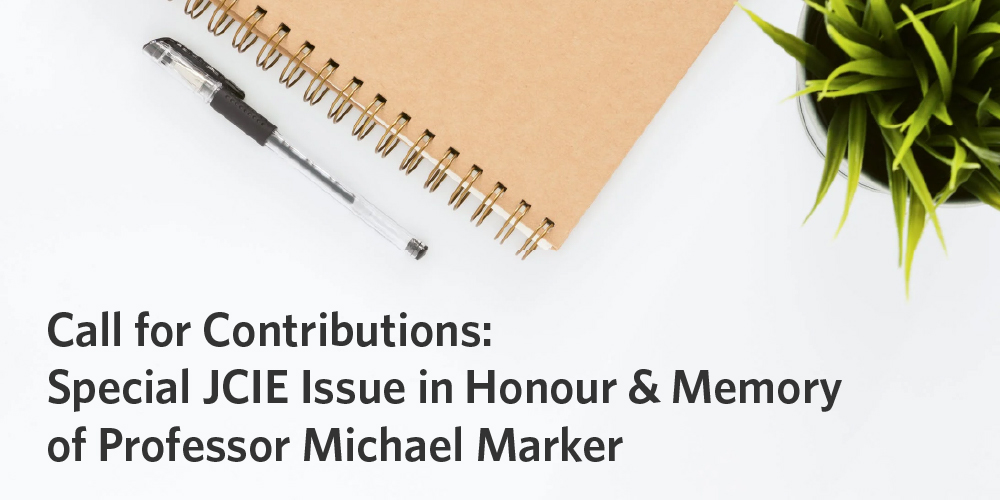
MA Meet-up
Date and time: Friday, February 19, 7:00-8:00pm PT
Location: Virtual (Zoom)
Description: The MA Meet-Up is an exciting and safe space to get to know one another, ask questions, and share experiences. Bring a warm drink and come join us!
Please RSVP here or contact edst.gaa@ubc.ca with questions.
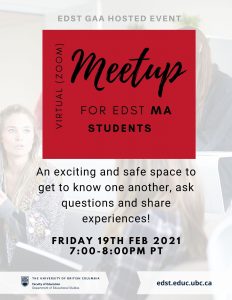
Please join us in congratulating former EDST PhD student Claudia Diaz, who successfully defended her dissertation in November of 2020, for receiving the Reconceptualizing Early Childhood Education (RECE) Rhedding-Jones Outstanding Dissertation Award for 2020. Each year RECE recognizes four outstanding dissertations from around the world that make extraordinarily strong contributions to rethinking early childhood.
The Faculty of Education and UBC seek to foster an environment in which respect, civility, diversity, opportunity and inclusion are valued.
By attending the event, you agree to adhere to the principles outlined in the UBC Respectful Environment Statement and UBC’s Resources for Respectful Debate.
Time and date: February 11, 2021, 2:00pm to 3:30pm
Speaker: Dr. Kogila Adam-Moodley, Professor Emerita, EDST
Title and Description: Race, Culture, and Politics in Education – A Global Journey from South Africa
Zoom Meeting URL:
https://ubc.zoom.us/j/66882187597?pwd=OCtPRnV2a013QnVNUnhiTTFOQjVtUT09
Meeting ID: 668 8218 7597
Passcode: 534265
In this presentation, Dr. Adam-Moodley discusses her new book, Race, Culture, and Politics in Education – A Global Journey from South Africa (Teacher’s College Press, Columbia University, 2020). Dr. Adam-Moodley will share her life journey as a South African sociologist of Indian ancestry to critically explore how marginalized communities lived with, fought, and braved racial engineering under apartheid. Moodley shares her experiences of living, studying, and teaching race, ethnicity, identity, nationalism, and critical multiculturalism in five countries: South Africa, the United States, Germany, Egypt, and Canada.
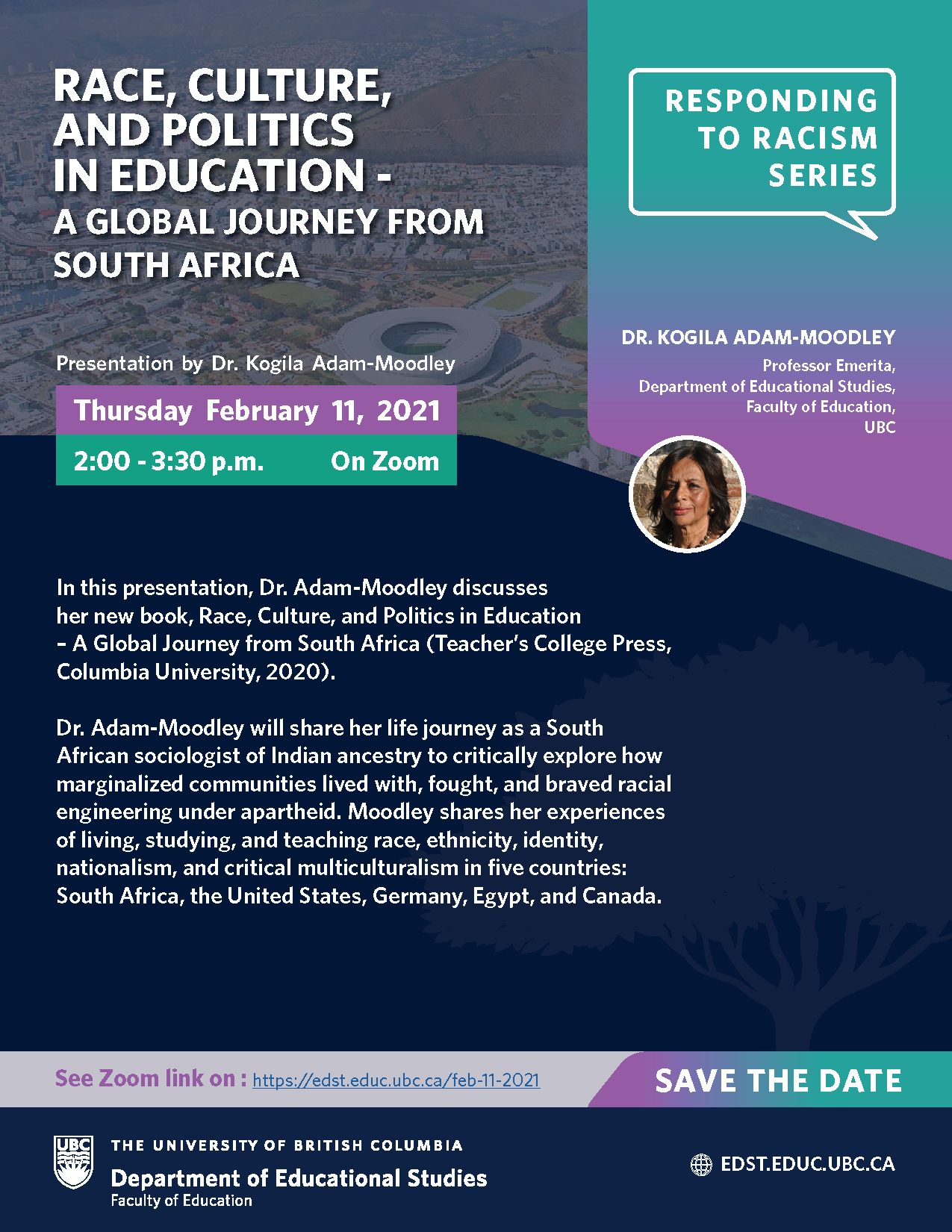
MA Meet-Up
Date and time: Thursday, January 21, 10:00-11:00am PT
Location: Virtual (Zoom)
Description: The MA Meet-Up is an exciting and safe space to get to know one another, ask questions, and share experiences. Bring a warm drink and come join us!
Please RSVP here or contact edst.gaa@ubc.ca with questions.
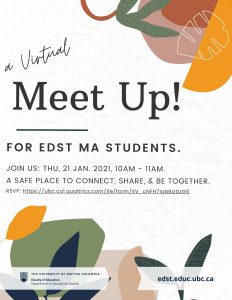
Beyond the proposal – what are the important ingredients for a good application and when should we start working on them?
Facilitator: Dr Amy Metcalfe
Date and time: Monday January 18th, 12:00 – 1:00pm PT
Location: Virtual (Zoom)
Description: Join Dr. Metcalfe for the first in a series of four workshops on the most important ingredients for a good funding application. While many of us focus our attention on writing a compelling proposal, there are many other factors in the process of compiling our application that can dramatically increase our chances of moving to the next stage in the proposal consideration process. Dr. Metcalfe will highlight those factors and suggest some great ways to start thinking of our funding applications as a long-term, dynamic process.
Please RSVP here or contact edst.gaa@ubc.ca with questions.
This workshop is part of the ‘Proposal Writing for Scholarships & Funding’ Workshop Series
About the series: Critical reflections on last year’s application process clarified for us the need among students for more help not just in putting together a high quality application, but also in planning ahead, and understanding all the critical steps involved towards a great application. Consequently, in consultation with Dr Amy Metcalfe, we have organized this workshop series to enrich students’ understanding and skills in this important area.
